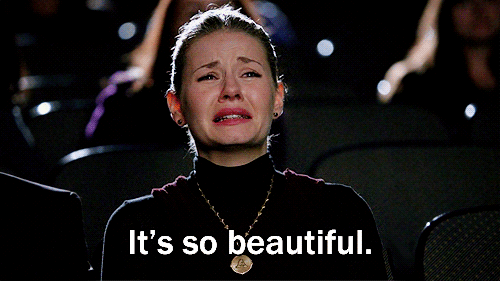I can't say that I've ever seen one topic blow up the blogosphere, twitter-land, world-of-facebook like Ebola.
Admittedly, I've more than joined the masses in questioning the CDC, posting about each new case, shaming those who initially finger-pointed at the nurse(s) who contracted Ebola, and pondering what this means for our country and our healthcare workers.
I've shared (and created) my share of Ebola memes:
I've run the range of emotions from "It's going to spread like wildfire," to "Everyone needs to take a chill pill." "Trust the experts," to "I don't think I trust these *experts*" <<insert air quotes here>>, and back to a cautious, "Maybe they're experts again."
So why has Ebola in particular created such borderline mass hysteria? Why is it affecting so many of us at such a personal level, despite the extremely low odds of contracting the disease? Yes, the mortality rate if you get it is crazy high. But I think the thing that gets me is this:
Nina and Amber weren't just doing their job;
They were doing OUR job.
Duncan (US "Patient Zero") could have been my patient, or yours.
But instead, he was the patient of Nina and Amber, and 50-70+ brave healthcare workers who faced an unknown and intimidating beast because it's what we do. Despite the fact that all the official statements indicate we are at a very low risk of a true outbreak in the U.S., nurses and other healthcare workers dealing with active Ebola are fighting and exposed to the most infectious stage of the disease. We need to be hyper-vigilant about protecting healthcare workers.
So, I ask myself, what is my response as a Critical Care Nurse supposed to be?
As somewhat of a catastrophist by nature, I recognize I am more prone to a full Hazmat suit even just in full-blown flu season.
But how do we, especially as healthcare professionals, sort through the mainstream and social media to find our way, balancing caution and safety against full-blown paranoia?
- Be vigilant, not panicked.
- Be informed. Really informed.
- Spread knowledge, not fear.
- Assess the Ebola plan at your institution, and advocate where you see gaps. Frontline staff may be more likely to see the day-to-day flaws with a plan (i.e. shoecovers, transporting lab specimens, ways to facilitate safe med administration and patient hygiene, disposal of waste) and have creative solutions.
- Pray for those affected. Nina Pham and Amber Vinson, the two RNs who contracted the virus caring for "Patient Zero" at Texas Health Presbyterian Hospital were doing their jobs. Our jobs. They deserve our support and not the blame some have ascribed to them. Pray for them, and those caring for them.
- Trust your gut. When in doubt, err on the side of caution.
- Share your creative ideas for safe, compassionate care.
- On the minuscule chance you care for an Ebola patient, please be careful about your interactions in the days following.
Remember that the sacred oath, "First, do no harm" applies to our patients as well as to US and our colleagues.
Sending you all Love and Safety!
CCRNLife













